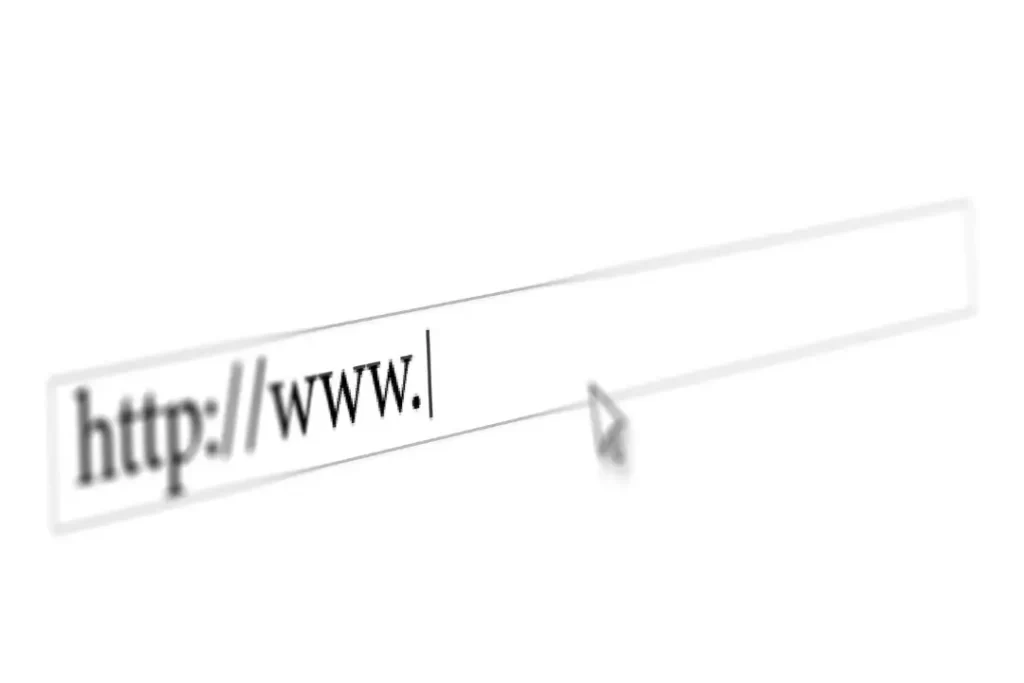
What is an SEO Slug and Discover How Your Website Can Reach the Top of Google with This Powerful Tool

If you’re in the world of website ownership or marketing, chances are you’ve already encountered the term “slug” at some point. But what exactly is a slug? If you search what is an SEO slug definition on google, you come across the definition, “A slug in SEO is a descriptive text that identifies a page, post or category within a website.” Well, let me tell you that SEO slugs or URL slugs are actually the secret sauce to creating a user and search engine-friendly URL structure.
But why are slugs important for SEO? The answer is simple: they can dramatically impact your website’s rankings. That’s right! Optimizing your slugs can make all the difference in how easily search engines can find your website.
So, if you’re looking to improve your website’s SEO, then understanding what a slug is, especially in WordPress, is crucial. In fact, we’ve put together a blog just for you, where we’ll explain everything you need to know about slugs, including what they are, why they even matter, and how to optimize them for SEO success.
Trust me; you won’t want to miss out on this valuable information!
What is The Purpose of SEO Slugs – Don't Let Your Slug SEO Strategy Behind
First things first: what is an SEO slug URL? Simply put, it’s part of a URL that comes after the name of the domain and identifies a particular page or piece of content on a website. But don’t let its simple appearance fool you – the SEO slug is a powerful tool in the world of digital marketing. So, what is the purpose of a slug? Well, for starters, it helps search engines understand what your page is about. When a search engine crawls your site, it looks at every aspect of your content, including the URL. If your slug accurately reflects the content on the page, then search engines will know how to rank and index it.
But here’s where it gets really interesting: a well-crafted SEO slug can also make your website more user-friendly. Think about it – when someone is browsing search results, they’re more likely to click on a link that includes words or phrases that match what they’re looking for. So if your SEO slug is targeted and relevant, you can increase your click-through rates and reduce bounce rates.
Let's Take a Deep Dive with an Exciting Example…
Let’s take some SEO slug examples to understand what is an SEO slug on a website? Suppose you have a blog post about the benefits of yoga for mental health. You could use a generic slug-like “website.com/blog/post123,” but why not get a little creative? How about “website.com/yoga-for-mental-health?” Not only does this tell search engines what your content is about, but it also gives potential readers a clear idea of what they can expect to find on the page. And if they’re interested in yoga or mental health (or both!), they’re much more likely to click on your link.
Of course, creating an effective SEO slug takes some thought and planning. You want to keep it short and concise but also descriptive enough to accurately reflect your content. And you have to choose keywords that people are actually searching for.
But if you can master the art of the SEO slug, you’ll be well on your way to increased online visibility, higher search rankings, and more traffic to your site.
Unveiling The Secrets – how to Optimize your SEO Slug?

Think of the slug as the golden ticket to SEO success. It’s part of the URL after the domain name that tells search engines what your page is all about. And if you want to get found by users who are searching for your content, you need to make sure your slug is doing its job.
5 Insider Tips To Optimize Your Slug Like A Pro
Following are some tips or SEO slug best practices for creating optimized SEO slugs that will help improve your website’s ranking on search engines:
1. Keep it short and snappy
As mentioned earlier, a brief and succinct slug can greatly aid search engines in comprehending the subject matter of your page. A good rule is to keep your slug under 50-60 characters to ensure that it doesn’t get truncated in search engine results.
2. Sprinkle in the keywords
Keywords play a crucial role in SEO, and including them in your slug can help search engines identify the topic of your page. It’s very important to use keywords in a natural way and avoid keyword stuffing. Incorporate one or two relevant keywords into your slug, making sure they fit within the context of your content.
3. Forget stop words
Stop words are common words like “and,” “the,” and “a” that doesn’t add much value to your slug. Avoid using them wherever possible, as they take up valuable space and don’t contribute to your page’s relevance or ranking.
4. Hyphens over underscores
This is a common mistake when creating slugs. Hyphens are easier to read for both search engines and human users, and they also help distinguish between words in the slug. Underscores, on the other hand, can make your slug look like one long word, which can be confusing for search engines.
5. Get Rid Off Uppercase Letters
By using lowercase letters when creating your website’s URL slugs, you can optimize your website for both search engines and humans alike. Not only does it create a consistent and easy-to-read structure, but it also helps prevent any potential issues with broken links or pages not being found. So, ditch those pesky uppercase letters and embrace the beauty of lowercase letter slugs for a cleaner and more user-friendly website.
By taking the time to read these valuable tips, you have successfully cleared up any confusion you may have had about what is an SEO slug based on.
The Surprising Link Between Slugs and Google Indexing

Did you know that search engine indexing is the foundation of every online search? In fact, according to recent studies, over 93% of all online experiences usually start with a search engine! That’s why it’s crucial to understand how search engines work and optimize your website accordingly.
When Google’s crawlers index your website, they pay special attention to the URLs of your web pages. That’s because your URL structure can significantly impact your website’s ranking on various search engine results pages (SERPs). In fact, statistics show that websites with descriptive URLs have a 25% higher click-through rate than those with generic ones!
So, if you want to improve your website’s visibility and attract more organic traffic, it’s essential to create SEO-friendly slugs for each of your web pages and make everything clear about what is slug in SEO. A well-optimized slug should accurately reflect the content of your page and include relevant keywords that people are searching for.
Remember, every piece of information that gets indexed by search engines can either help or hurt your website’s performance. So make sure you follow the best practices for SEO slugs and give your website the best chance to succeed in the highly competitive online landscape.
Bringing to Light – What Is An SEO Slug In WordPress

In simple terms, a slug is a customizable part of the URL that helps identify a particular page or post on your website. It’s a crucial component for optimizing your website’s SEO and ranking on search engines. It’s also important to note that the effectiveness of your slug depends heavily on your permalink settings. When creating a new post or page, WordPress generates a default slug based on the title of your content. But fear not, as you have complete control over this editable component. You can customize your slug to accurately reflect the content of your page while also incorporating relevant keywords to improve your website’s SEO.
Suppose you’re running a travel website and creating a new page for a popular tourist destination. The default slug may be “popular-tourist-destination,” but you could change it to “best-things-to-do-in-Maldives” to accurately reflect the content of your page and incorporate relevant keywords.
It’s important to note that slugs work best when paired with the correct permalink settings. For example, if your permalink structure is set to “post name,” your customized slug will appear at the end of your URL, making it easily identifiable and memorable for users.
Wrap-Up
As we wrap up this blog on “what is a seo slug”, it’s clear that SEO slugs are an essential piece of the puzzle when optimizing your website for search engines. But let’s be real – “slug” doesn’t exactly sound like the most exciting term in the world. However, don’t let the name fool you – a well-crafted slug can be the key to unlocking greater visibility and traffic for your website. By taking the time to carefully curate your slugs with relevant keywords, you’ll be giving your pages a better chance to rank higher on search engine results pages. So go forth, fellow digital marketers, and give those boring old slugs a makeover that will make them the envy of all your competitors!
If you want to know about Clean URL click here.
frequently asked questions
An SEO slug is also commonly referred to as a URL slug or a URL-friendly slug. It is a part of the URL that identifies the specific page and helps search engines and users to understand the content of that page.
The maximum length of an SEO slug varies depending on the platform you are using. It is recommended to keep the seo slug length below 70 characters to ensure that it is fully visible in search engine results.
A permalink, short for permanent link, is a URL that points to a specific post or page on a website. It is often used in blogging platforms like WordPress to create a unique URL for each post or page that remains unchanged even if the post or page is updated.
An SEO slug XML is not a commonly used term in the world of SEO. However, XML sitemaps can include URLs with SEO-friendly slugs to help search engines better understand the structure of your website.
An SEO slug tool is a software program or online service that helps you optimize your website’s URLs for search engines. It may offer features like automatic URL rewriting, keyword analysis, or suggestions for improving your URLs’ visibility and readability.
An SEO slug plugin is a type of software add-on for a content management system (CMS) like WordPress that helps you optimize your website’s URLs for search engines. It may provide functionality like automatic URL rewriting, customizable URL structures, or tools for managing redirects and canonical tags.
Most Popular


Types Of Websites

Types of Keywords

What Is Sitemap
Social Share
Categories
Subscribe To Our Weekly Newsletter

How to Disable Comments on WordPress
An Ultimate Step-By-Step Guide: How to Disable Comments on WordPress Just In The Nick Of Time A Quick Guide – Learn how to disable comments

Types Of Websites
Dream, Create, Inspire: 15 Types Of Websites You Can Create In 2023! Stay Ahead of the Curve: Trendsetting Website Concepts for 2023! The Internet is

Types of Keywords
The Ultimate Guide to 17 Types of Keywords You Can’t Ignore “Discover, Target, Succeed: The Power of Keywords Revealed!” 3.5 billion searches are carried out

What Is Sitemap
What Is Sitemap And Why Your Website Must Have One If You Wish To Rank Top On Google “Make Your Website Get Crawled And indexed

How Google Evaluates Links for SEO
Linking the Dots: How Google Evaluates Links For SEO? “Linking Up with Google: Your Guide to Mastering SEO Through Link Evaluation” Links, sometimes known as
How to Add Facebook Pixel Code in WordPress
How to Add Facebook Pixel Code in WordPress Free! Your Ultimate Step-By-Step Guide “Transform Visitors into Valuable Insights for Ultimate Marketing Triumph” Facebook Pixel is
